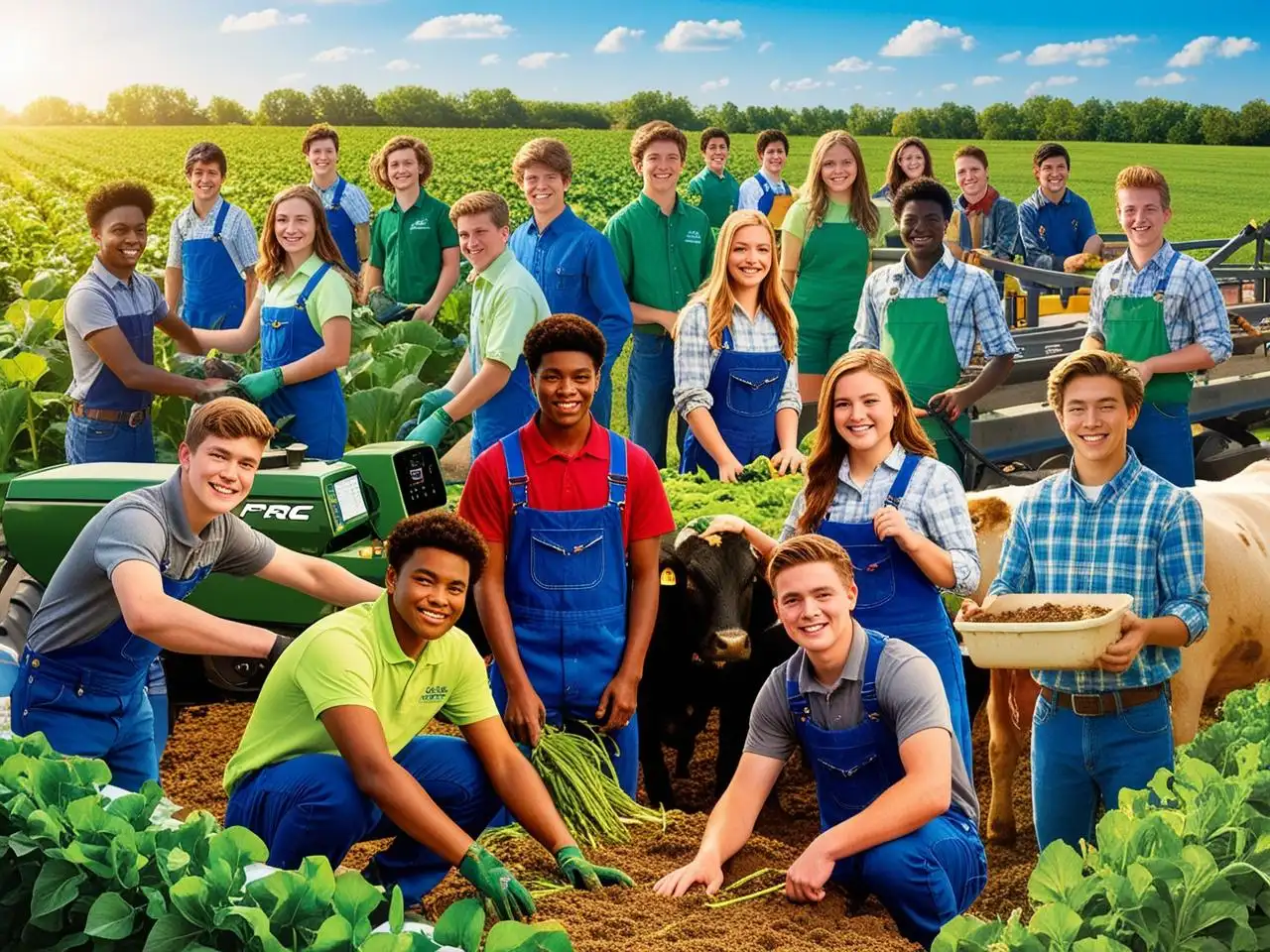As the global population grows and the demand for food increases, the need for skilled and innovative farmers has never been greater. However, the agricultural industry faces challenges, including an aging workforce, climate change, and evolving technology. Educating the next generation of farmers is essential to ensuring food security, sustainability, and the resilience of farming communities worldwide
The Need for Agricultural Education
An Aging Workforce
According to the United Nations, the average age of farmers in many countries is over 50, highlighting the urgent need to attract younger individuals to agriculture.
Technological Advancements
Modern farming relies heavily on technology, including precision agriculture, artificial intelligence, and drone usage. Young farmers must be equipped with the skills to adopt and innovate using these tools.
Sustainable Practices
The environmental impact of traditional farming practices has brought sustainability to the forefront. Educating young farmers on sustainable agriculture is crucial for preserving resources and addressing climate change.
Global Food Security
With the world population expected to reach 10 billion by 2050, the agricultural sector must expand its capacity. Educating the next generation ensures the industry can meet this challenge while maintaining quality and equity.
Key Components of Modern Agricultural Education
Hands-On Training
Practical experience is a cornerstone of agricultural education. Initiatives like internships, apprenticeships, and farm-based learning programs allow young individuals to gain real-world insights into farming practices.
Incorporating Technology
Education programs are increasingly integrating courses on precision agriculture, data analysis, and robotics to prepare students for tech-driven farming.
Promoting Sustainability
Teaching methods like crop rotation, agroforestry, and organic farming equips young farmers with tools to practice environmentally responsible agriculture.
Entrepreneurship Skills
Beyond farming techniques, educational programs now emphasize business management, marketing, and financial literacy, helping young farmers turn their work into profitable ventures.
Community Engagement
Collaborative projects and initiatives encourage young farmers to work together and learn from experienced community members, fostering knowledge-sharing and mutual support.
Challenges in Educating Future Farmers
Perception of Agriculture
Farming is often seen as labor-intensive and less lucrative, deterring young individuals from pursuing it as a career.
Access to Resources
Limited access to land, funding, and technology can discourage young farmers from entering the industry.
Education Gaps
Many regions lack dedicated agricultural education programs, making it difficult for aspiring farmers to gain the necessary skills and knowledge.
Policy Support
Inadequate government policies and support systems can hinder efforts to attract and train the next generation of farmers.
Successful Initiatives for Educating Young Farmers
4-H and FFA (Future Farmers of America)
These programs in the U.S. provide agricultural education to youth, fostering leadership skills, technical knowledge, and a passion for farming.
Farm Schools and Colleges
Institutions like the International Farming School in Uganda and the Agriculture and Forestry University in Nepal train young farmers in modern techniques and sustainability.
Mentorship Programs
Programs connecting experienced farmers with young aspirants offer invaluable guidance and hands-on learning.
Government Incentives
Countries like Canada and Japan have introduced subsidies and grants to encourage young people to enter agriculture and invest in education.
The Role of Technology in Educating Farmers
Technology is transforming agricultural education by:
Offering online courses and webinars that make training accessible to rural areas.
Providing simulation tools that allow students to practice farming techniques in a virtual environment.
Using mobile apps to share real-time farming tips and connect young farmers with experts and peers.
The Future of Agricultural Education
Global Collaboration
International partnerships can share best practices, research, and resources to enhance agricultural education.
Focus on Inclusion
Expanding opportunities for women and underrepresented groups ensures diverse perspectives and greater innovation in the industry.
Adapting to Climate Change
Programs must evolve to teach adaptive farming techniques that address climate variability and resource constraints.
Inspiring Innovation
Encouraging research and innovation among young farmers can lead to groundbreaking solutions for global agricultural challenges.
Conclusion
Educating the next generation of farmers is vital for creating a sustainable and prosperous agricultural sector. By addressing challenges, embracing technology, and promoting sustainability, we can inspire young individuals to pursue farming and equip them with the tools to succeed. Investing in agricultural education is an investment in the future—one that ensures food security, environmental preservation, and thriving farming communities for generations to come.

